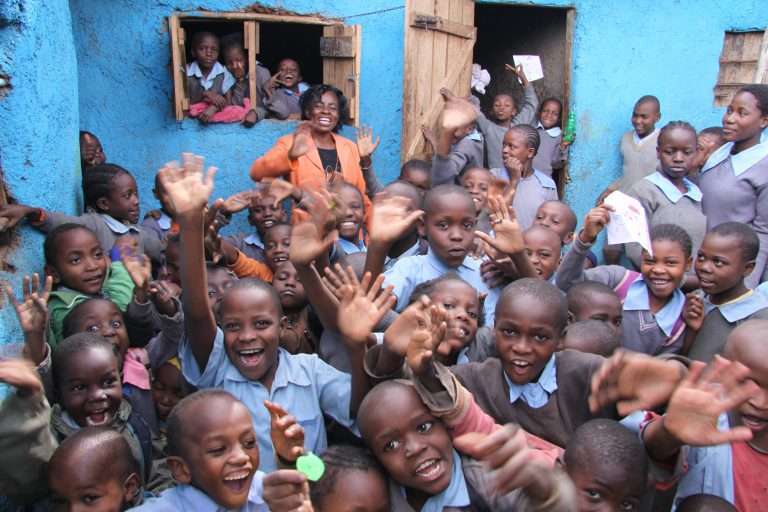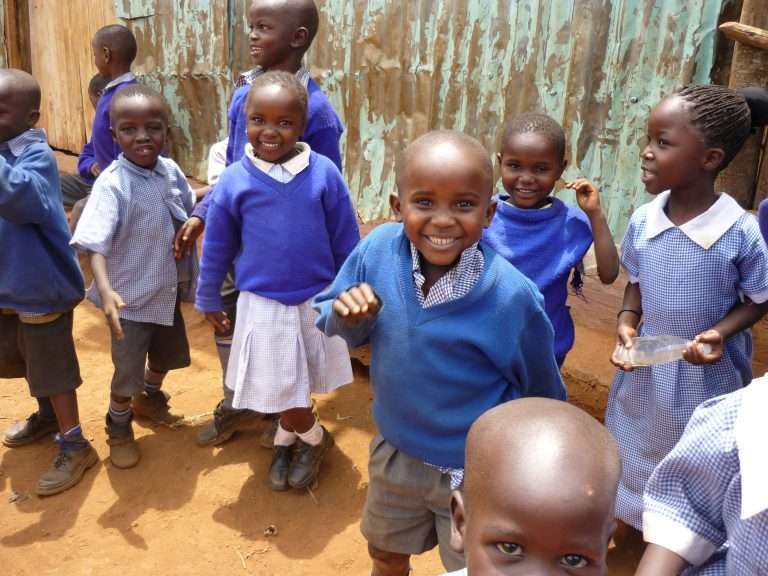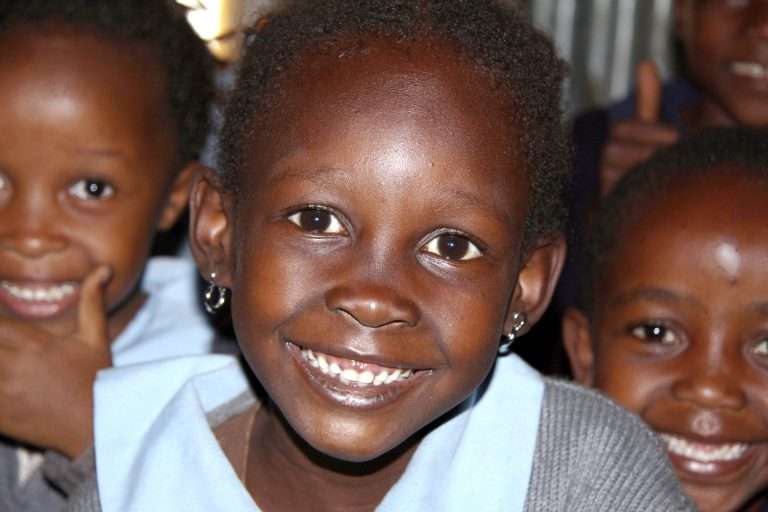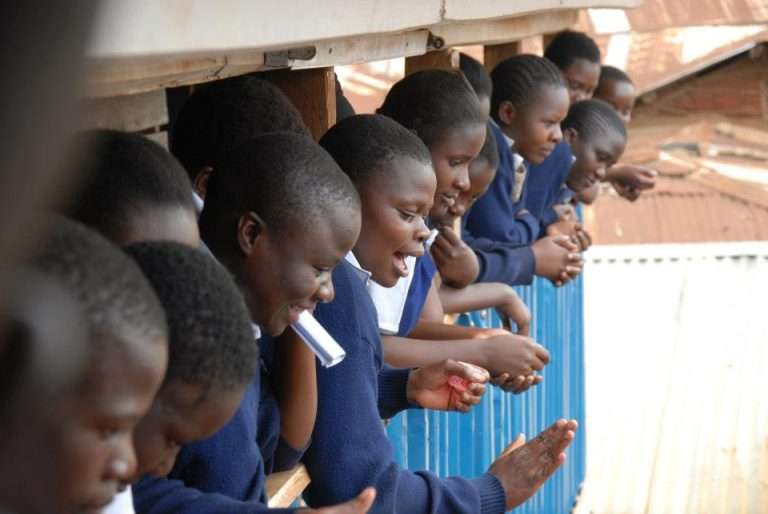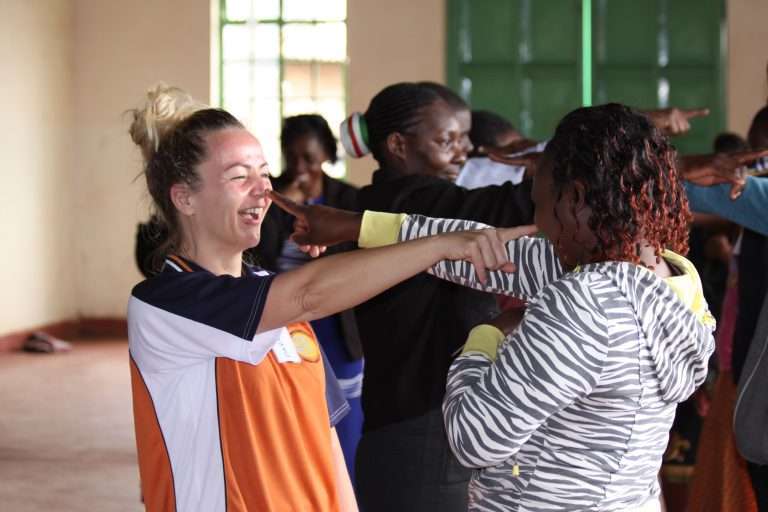Kindergarten / primary education
Children who go to school have the future! Therefore, Stichting4Life finds it important to contribute to ensuring that as many children as possible in the Kibera slum can go to school. Several initiatives have been set up for this purpose.
Children of the mothers
We make sure that at least two children from the families of the women who have worked with us in our employment projects can go to school. Usually the oldest children. Should the mother drop out (e.g. due to HIV/AIDS), they can support the younger children. There are also a number of orphans in this project.
From elementary school to work
Our goal is not to provide schooling, but ultimately to find a paid job. The pathway starts as early as childcare and goes through elementary school to high school. After high school, the students with the best results can go on to college. For the other students, there are various opportunities to learn a trade, start for themselves and/or work.
Jukumu Letu – nursery/elementary school
Since 2009 we have been supporting Jukumu Letu: an organization that takes care of young (orphaned) children aged 0 to 7, giving single mothers/guardians the opportunity to work during the day. Through our support, the children receive a healthy lunch every day, and for the poorest of the poor, we provide clothing and medical care.
We also helped the organization start its own elementary school. This way, when the children turn 7, they can move on to elementary school. And they are assured of an education after daycare.
Schools Kibera
In addition to the children of the women, the foundation also supports a number of schools located in the middle of the Kibera slum and therefore often “cut off” from any outside help. These schools are set up by neighborhood volunteers (often mothers) and have little to no resources. Before we give support, we first talk to the head of the school and see how the school handles donated funds. Does this go well? Then the support starts in the form of a new building, furniture, paid teachers, teaching materials and lunch every day.
For many of these children, lunch at school is often the only nutritious meal of the day. For some children it is even the reason to come to school, but at least necessary to pay attention throughout the day.
All schools have toilets and teach about hygiene. Before lunch, hands are washed.
Akili School – primary school
- From 120 to 180 children
- From a ruin to 10 classrooms with doors and windows
- From sitting on the floor to tables and benches
- School materials for everyone
- From 2 volunteers to 10 paid and (partly) trained teachers
- Every day lunch and special porridge for the little ones
- From a hole in the ground to 10 real toilets
Aim Higher School – primary school
- From chipboard ruins to a real building with an extra floor
- From group 1 to 5 to kindergarten to group 8
- With paid and (partly) trained teachers
- With a kitchen in which all 200 students are cooked every day
- Training on Hygiene
- With a very proud principal of the school
Fairview School – primary school
- From 126 to 380 children
- From 2 rooms with partitions to 12 rooms and 2 extra rooms
- With contributions from parents to involve them in the education of their children
- Two cooks in a kitchen with chimney
- Every day lunch with fruit and vegetables for all children
- With clean drinking water and running water in the toilets
- A headmaster who is in control
